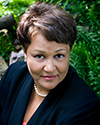VOLUME XXIII / NOV 2014
Two Dreams is a wellness program led by Andrea G. Barthwell, MD, FASAM that provides individualized care for those who dream of recovering a healthy lifestyle.
NOTE FROM DR. B.
This month we gathered together for a wonderful Thanksgiving celebration with the Two Dreams Outer Banks staff, clients, and family members. The holidays can be particularly challenging for those in recovery, and that is why we must remind ourselves and each other of our gratitude and the gains we make in treatment.
Thank you to everyone who attended my performance at the Under the Gun Theater in Chicago this past month. It was a particularly special experience to share the stage with my daughter, who was in the improv ensemble for the show.
I am greatly looking forward to attending the annual Southworth Associates Holiday Party, and spending time with all the wonderful, inspiring individuals that work in this field.
VOLUME XXIII / NOV 2014
Two Dreams is a wellness program led by Andrea G. Barthwell, MD, FASAM that provides individualized care for those who dream of recovering a healthy lifestyle.
NOTE FROM DR. B.
This month we gathered together for a wonderful Thanksgiving celebration with the Two Dreams Outer Banks staff, clients, and family members. The holidays can be particularly challenging for those in recovery, and that is why we must remind ourselves and each other of our gratitude and the gains we make in treatment.
Thank you to everyone who attended my performance at the Under the Gun Theater in Chicago this past month. It was a particularly special experience to share the stage with my daughter, who was in the improv ensemble for the show.
I am greatly looking forward to attending the annual Southworth Associates Holiday Party, and spending time with all the wonderful, inspiring individuals that work in this field.
MONTHLY PROMISE
#11: “Intuitively know how to handle situations which used to baffle us.”
By: Brett Dunning, TDOB Clinical Director
This month’s promise took much practice to materialize in my life of recovery and there is empirical evidence that provides the reason why. An individual’s right brain is responsible for abstract reasoning, creative abilities, and artistic tendencies. I must admit that I was an individual who relied mainly on the left side of my brain to solve the majority of my problems. The left side of the brain is responsible for logic, facts, and mathematical solutions to problems that may arise. Basically, the right side of the brain deals with abstract thought and the left side deals with concrete logic.
Through the recovery process I learned precisely who I was in the world, incorporating both my strengths and weaknesses. I knew that over-intellectualization was a major problem in my life and that my addiction utilized manipulation that left me unable to trust my own logic. Through recovery I learned acceptance, surrender, humility, and spirituality; in hindsight I see that I was learning to utilize the right side of my brain. I learned that I could sit in discomfort, I learned that I could tolerate pain and not utilize logic to impulsively relieve the pain I was experiencing. In early recovery I needed to remind myself to “pause” to not overthink a situation, to pray, meditate, and ask others for help. I was training myself to utilize the right side of my brain.
As I was utilizing the right side of my brain, I was also beginning to trust the left side of my brain. I began to recognize when to utilize surrender, acceptance, and humility and when I could utilize my God given gifts of intellect and problem solving. I often tell clients that in addiction my mind was like a “bucking bronco”, wild and loose, untamed to the fullest. In recovery I learned to not only tame my mind but to trust it and utilize it in situations when necessary. I know today that I intuitively know how to handle situations which used to baffle me because I utilize the right side of my brain for spirituality and abstract reasoning which I like to refer to as wisdom and the left side of my brain for logic and problem solving which I refer to as intellect.
NEWS HIGHLIGHTS
ER Visits Increase Significantly From Synthetic Marijuana
By: Kara Hamilton, TD Art Director
The number of emergency department visits involving synthetic cannabinoids has doubled according to a recent report by the Substance Abuse and Mental Health Services Administration (SAMHSA). Synthetic cannabinoids are substances that have the same effect as marijuana, but are not derived from the plant, and can contain contaminants that can result in unpredictable effects on users. Reported adverse effects include vomiting, elevated heartbeat, tremors, seizures, hallucinations, unresponsiveness, and even death.
As stated by SAMHSA Administrator Pamela S. Hyde, “Synthetic cannabinoids are a growing public health risk – made even more dangerous by the widespread misconception that they are safe and legal. These injury reports compel us to get the word out to all segments of the community – especially youth – that these products can cause significant harm.”
COMMUNITY
By: Greg Schlichter, TDOB Lead Therapist
This Month on the Banks: Two Dreams Outer Banks recognizes that the reality of being separated from loved ones on a holiday can be a stark reminder of the chaos that addiction can cause. Those affected by addiction may find these occasions draw into focus feelings of loss, disappointment, guilt, sadness, confusion, or any number of difficult emotions.
That is why the Thanksgiving holiday presents a particularly meaningful opportunity for those in recovery. By giving thanks, we are reminded to be grateful. And what could be more deserving of our gratitude than a new life free of addiction?
As has become our custom, the Two Dreams Thanksgiving comes a week early to the Outer Banks, and families of clients are invited to join us in celebrating a traditional Thanksgiving dinner. This allows those families that are able to visit a chance to lend their loved ones support without disrupting long-standing traditions or obligations in order to do so. It also provides the opportunity for those gathered to express what they are grateful for, all while enjoying a delicious, traditional dinner.
Many profound and moving expressions of thankfulness were shared by the clients, family, and staff. Executive Clinical Director, Sidney Miltz, was present to share the story of the remarkable origins and unique philosophy of Two Dreams, which was founded by Andrea G. Barthwell, MD, FASAM. Sid acknowledged the efforts and dedication of our staff, and encouraged Two Dreams clients and family members to envision happy, healthy future Thanksgivings to come as a result of their continued journey in recovery.
THE 3P’S
mental peace – physical well-being – personal productivity
KEEP A GRATITUDE LIST
By: Kristin Wicke, TD Administrative Assistant
What are you thankful for this month? We often focus on the things that we don’t have, and forget about having an attitude of grace towards the things that we do have. Studies are now showing a link between gratitude and one’s quality of life. According to the Journal of Psychosomatic Research, gratitude has many health benefits such as increasing vitality, lowering blood pressure, calming your mind and heart and improving your slumber through happier pre-sleep thoughts.
How does one practice being grateful? Christopher Kennedy Lawford, author of What Addicts Know: 10 Lessons from recovery to Benefit Everyone , recommends keeping a gratitude list. This list can include your own strengths and good qualities, along with acknowledging people who have shown you kindness or helped you in some way.
Positive affirmations can also help you feel gratitude. Try repeating a positive statement to yourself daily. If you are having trouble with negative thoughts fogging your mind, try switching negative affirmations to positive affirmations. “I’m a failure because I don’t have x,y and z” can be changed to, “I’m thankful for what I do have and I’m becoming the person I want to be”. Soon the practice will become a habit and the payoff will not only benefit you emotionally, but physically as well.
Thank you to our content contributors:
- Dr. Andrea Barthwell – Founder
- Brett Dunning – TDOB Clinical Director
- Greg Schlichter – TDOB Lead Therapist
- Kristin Wicke – TD Administrative Assistant
- Kara Hamilton – TD Art Director
For admissions and all staff call us at: (504) 510-2331>
© 2014 Two Dreams Outer Banks. All Rights Reserved.




